Native name | Commercial Bank of India |
|---|---|
| Founded | Bombay, British India (1845) |
| Defunct | 1866 |
Number of locations | 10 |
| Products | Banking |
The Commercial Bank of India, also known as Exchange Bank was a bank which was established in Bombay Presidency (now Mumbai), in 1845 of the British Raj period. The bank failed in the crash of 1866, [1] after successfully operating for 20 years. The bank had eight branches, exclusive of the head office at Bombay, viz: London, Calcutta, Hong Kong, Fuzhou, Shanghai, Hankou (now part of Wuhan), Yokohama and Singapore, with an agency for the purchase of bullion at San Francisco. [2] Commercial Bank of India then was winded up as directed by the Master of the Rolls, under the corresponding section of the Companies Act of England, where the company was registered under the Indian law and was not registered in England, but was carrying on business in England. [3]

Mumbai is the capital city of the Indian state of Maharashtra. Mumbai is the de facto financial centre and the most populous city of India with an estimated city proper population of 12.5 million (1.25 crore). Mumbai is the centre of the Mumbai Metropolitan Region, the sixth most populous metropolitan area in the world with a population of over 23 million living within the Mumbai Metropolitan Region. Mumbai lies on the Konkan coast on the west coast of India and has a deep natural harbour. In 2008, Mumbai was named an alpha world city.

The Mumbai Police is the police department of the city of Mumbai, Maharashtra. It is a part of Maharashtra Police and has the primary responsibilities of law enforcement and investigation within the limits of Mumbai. The force's motto is "Sadrakṣaṇāya Khalanigrahaṇāya".
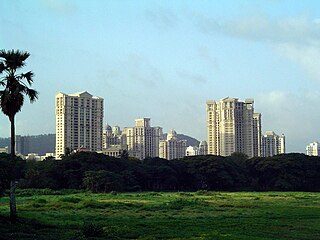
Powai is a residential suburb located in central Mumbai, Maharashtra, India. It is situated on the banks of Powai Lake, and is bound by the hills of Vikhroli Parksite to the south-east, Chandivali to the south-west, the L.B.S. Marg to the north-east and the Sanjay Gandhi National Park to the north beyond the lake. The Jogeshwari-Vikhroli Link Road, one of the city's busiest thoroughfares linking the western and eastern suburbs, passes through Powai. The place also hosts thousands of devotees every year during the Ganesh Chaturthi festival for the visarjan processions.

Bank of India (BOI) is an Indian public sector bank headquartered in Bandra Kurla Complex, Mumbai. Founded in 1906, it has been government-owned since nationalisation in 1969. BoI is a founding member of SWIFT, which facilitates provision of cost-effective financial processing and communication services.

Bennett, Coleman and Company Limited is an Indian media conglomerate headquartered in Mumbai, Maharashtra. The company, which is a family-owned business, publishes The Times of India newspaper, which is the highest selling daily English-language newspaper in India, in addition to several radio stations, television channels such as Times Now, the film magazine Filmfare, and the women's magazine Femina. The Sahu Jain family continues to own a majority of the stake in the group, and in May 2023, the Times Group was split into two separate business entities between brothers Vineet Jain and Samir Jain, such that its radio and broadcast properties would remain with Vineet Jain and its print properties would be under Samir Jain.
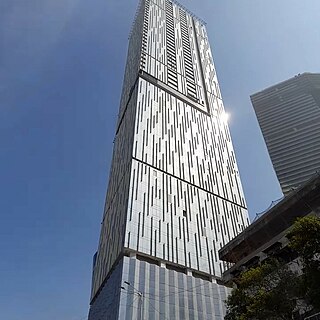
Mumbai is the entertainment, fashion and commercial centre of India. Mumbai is the largest economy in India. As of 2022, Mumbai Metro's nominal GDP is estimated to be US$310 billion, and GDP (PPP) is estimated to be US400 billion, Mumbai's GDP (PPP) per capita rounds up to around US$23,000. It is the richest Indian city and 12th richest city in the world with a net wealth of around US$1 trillion with 46,000 millionaires and 48 billionaires. Mumbai accounts for slightly more than 6.16% of India's economy, contributing 10% of factory employment, 30% of income tax collections, 45% of entertainment tax, 60% of customs duty collections, 20% of central excise tax collections, 40% of foreign trade, 100% of stock market assets and rupees 1,60,000 crore in corporate taxes to the Indian economy.
Trams in India were established in the late 19th century. Horse-drawn trams were introduced in Kolkata in 1873; in Mumbai, trams began operations in 1874; in Nashik in 1889; electric trams began in Chennai in 1895, and trams were also introduced in Kanpur and Delhi. They were discontinued in all Indian cities between 1933 and 1964, except for Kolkata.

Ashok Kumar Banker is an author and screenwriter. His writing spans crime thrillers, essays, literary criticism, fiction and mythological retellings. The author of several well-received novels including a trilogy billed as "India's first crime novels in English", he became widely known for his retellings of Indian mythological epics, starting with the internationally acclaimed and best-selling eight-volume Ramayana Series. His books have sold over 2 million copies and have been published in 16 languages in 58 countries. His Epic India Library is an attempt at retelling all the myths, legends and itihasa of the Indian sub-continent in one story cycle comprising over 70 volumes.
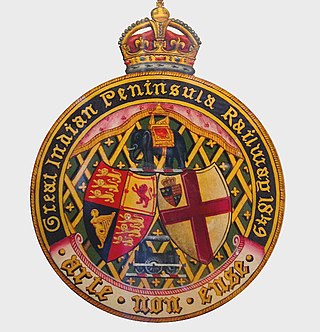
The Great Indian Peninsula Railway was a predecessor of the Central Railway, whose headquarters was at the Boree Bunder in Mumbai. The Great Indian Peninsula Railway Company was incorporated on 1 August 1849 by the Great Indian Peninsula Railway Company Act 1849 of the Parliament of the United Kingdom. It had a share capital of 50,000 pounds. On 21 August 1847 it entered into a formal contract with the East India Company for the construction and operation of a railway line, 56 km long, to form part of a trunk line connecting Bombay with Khandesh and Berar and generally with the other presidencies of India. The Court of Directors of the East India Company appointed James John Berkeley as Chief Resident Engineer and Charles Buchanan Ker and Robert Wilfred Graham as his assistants. It was India's first passenger railway, the original 21 miles (33.8 km) section opening in 1853, between Bombay (Mumbai) and Tanna (Thane). On 1 July 1925, its management was taken over by the Government. On 5 November 1951, it was incorporated into the Central Railway.
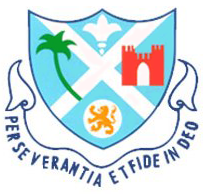
The Bombay Scottish School, Mahim, popularly known as Scottish, is a private, Christian co-educational day school located at Mahim West in Mumbai, India. The institution was established in 1847 by Scottish Christian missionaries under the name Scottish Female Orphanage. Bombay Scottish School, Powai is an affiliate of this institution.

Mumbai Port Trust is a port which lies midway on the West coast of India, on the natural deep-water harbour of Mumbai (Bombay) in Maharashtra.The harbour spread over 400 square kilometres (150 sq mi) is protected by the mainland of Konkan to its east and north and by the island city of Mumbai to its west. The harbour opens to the south to the Arabian Sea.

The Bank of Bombay was the second of the three presidency banks of the Raj period. It was established, pursuant to a charter of the British East India Company, on 15 April 1840.

The economy of the state of Maharashtra is the largest in India.
Axis Bank Limited, formerly known as UTI Bank (1993–2007), is an Indian banking and financial services company headquartered in Mumbai, Maharashtra. It is India's third largest private sector bank by assets and Fourth largest by Market capitalisation. It sells financial services to large and mid-size companies, SMEs and retail businesses.
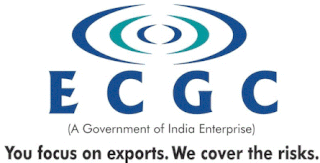
ECGC Limited is a government owned export credit agency of India. It is under the ownership of the Ministry of Commerce and Industry, Government of India, and is headquartered in Mumbai, Maharashtra. It provides export credit insurance support to Indian exporters and banks. Its topmost official is designated as Chairman and Managing Director, who is a central government civil servant under ITS cadre.
Indigenous tribals have inhabited Mumbai (Bombay) since the Stone Age. The Kolis and Aagri were the earliest known settlers of the islands. The Maurya Empire gained control of the islands during the 3rd century BCE and transformed them into a centre of Hindu-Buddhist culture and religion. Later, between the 2nd century BCE and 10th century CE, the islands came under the control of successive indigenous dynasties: the Satavahanas, Abhiras, Vakatakas, Kalachuris, Konkan Mauryas, Chalukyas, Rashtrakutas, Silharas & Chollas.

Rana Kapoor is an Indian former banker who was the founder, managing director and CEO of Yes Bank, an Indian private sector bank. Following a career in financial institutions, he co-founded Yes Bank in 2003, with its registered office in Mumbai. He was appointed as the president of ASSOCHAM in July 2013, and was succeeded by Sunil Katoria after serving his two year term.

Devita Saraf is an Indian business woman, born in Mumbai, India. She is the founder, chairman and CEO of Vu Televisions.
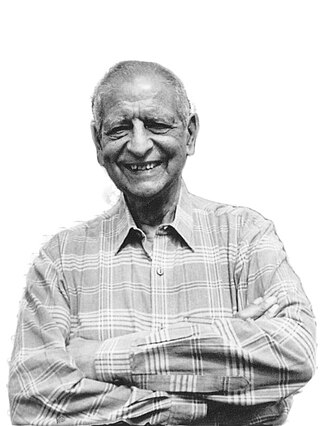
Kekoo Gandhy was an Indian art gallerist, art collector and art connoisseur, who pioneered the promotion of Indian modern art from the 1940s. He established Chemould Frames, a frame manufacturing business in 1941, soon he started displaying works of young modern artists K. H. Ara, S. H. Raza, K. K. Hebbar and M. F. Husain in his showroom windows. This led to gradual rise of modern art movement and post-colonial art in India. Eventually Gallery Chemould, India's first commercial art gallery, was opened in 1963 on the first floor of the Jehangir Art Gallery.

Zainulabedin Gulamhusain Rangoonwala was the co-founder and managing director of the Bombay Mercantile Cooperative Bank. This became one of the largest cooperative banks in India and also in Asia.